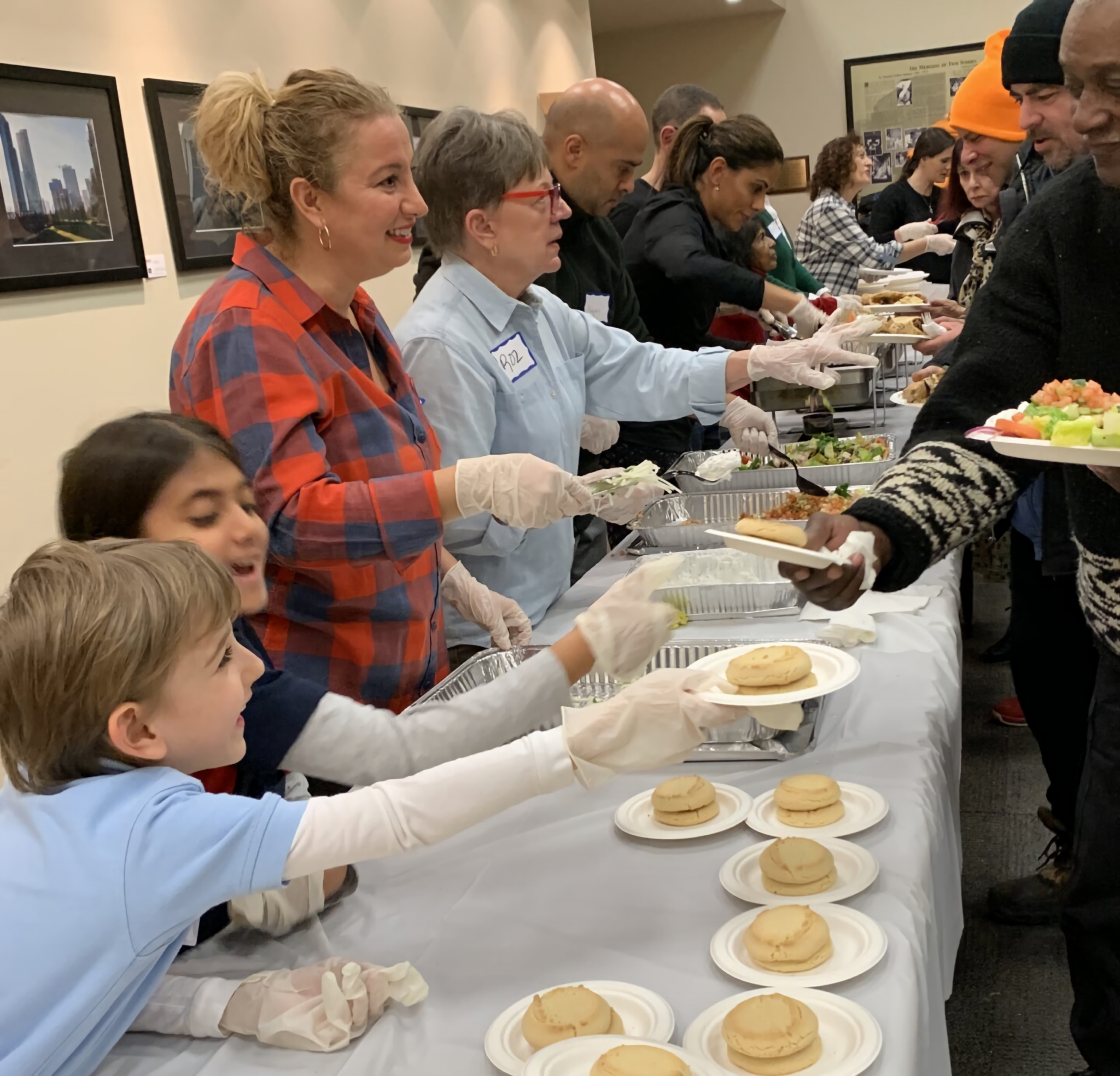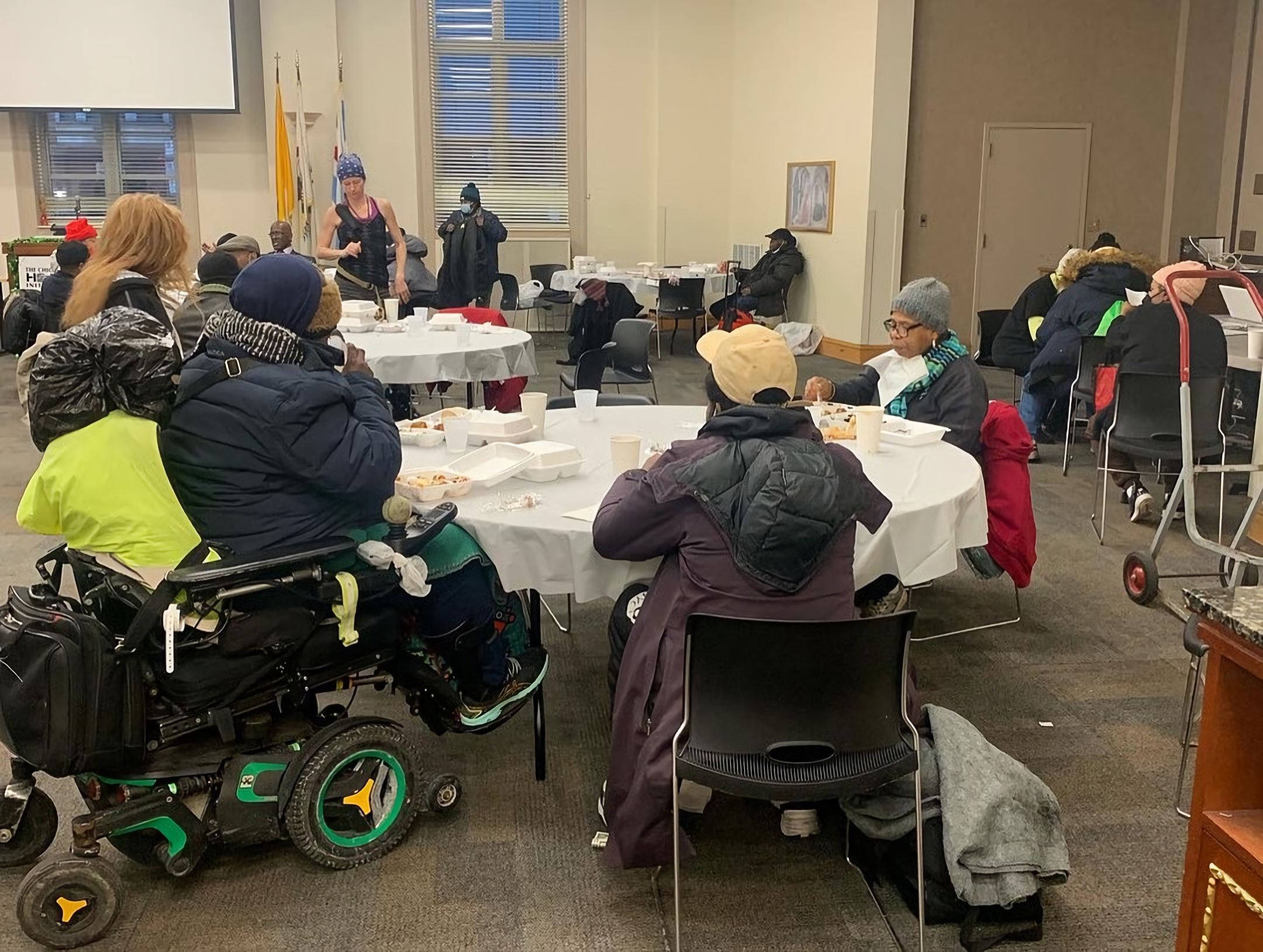The Chicago Help Initiative was founded in 1999 by Jacqueline C. Hayes to be a compassionate response to the homeless displaced by efforts of the City of Chicago. It has evolved into a hyperlocal model of how individuals can link together to address a difficult problem using a mix of existing resources and simple and accessible technology. Headed by Doug Fraser as Executive Director for the last decade, it intentionally remains caring, focused and nimble, providing hot meals and access to resources to homeless and those in need.

Rather than creating a kitchen and meal service for the meals served, CHI has tapped the generosity of local restaurants and companies that provide the hot meals, while CHI provides an active and direct volunteer experience for employees of those companies. This not only reduces the cost and improves the quality of the meal, but it increases understanding of the work done and the challenges of the people served.
To address the social isolation and depression that often accompanies homelessness, CHI has enlisted numerous community volunteers to teach what they know in peer groups. Groups have included yoga, art, computers, theater, choir, reading, storytelling and more. This provides a productive and meaningful opportunity for neighbors to give back, while creating a positive setting that links supper guests to each other and to CHI and can lay the foundation for trust and patience as they seek change.

For more intensive services needed by the population served, CHI chooses not to duplicate what others already do well, such as addiction or mental health services. Instead, the meal and specifically trained volunteers become a hub, performing some simpler tasks on-site, like establishing a mailing address, locating other meals or signing up for emergency housing, while connecting those with more complicated issues to organizations better equipped to address them. Over the years, that work came together in a pamphlet called the Resource Guide, published periodically and directed for distribution to the homeless, that locates food, shelter and foundational assistance. That guide is now distributed by dozens of local businesses, government bodies, churches and individuals.
That same network that was built to better serve guests, of individuals, businesses and service organizations, became essential during the Covid pandemic. Because CHI was already set up as a hub, when Covid protocols shut down other community meals across Chicago, CHI was able to tap that network to fill in the gaps. CHI crowdsourced donated bag meals and enlisted shuttered kitchens and idled food trucks to cook hot meals. In short order, CHI was able to shift from serving 200 meals a week to delivering, coordinating and serving almost 5000.

Moving forward, CHI is again innovating how to best serve those in need. CHI is actively training volunteers at partner sites, established during the pandemic, to perform the same simple tasks and referrals done at CHI. In a second pivot, meals are no longer sourced entirely from downtown Chicago – but in addition, the organization is intentionally purchasing meals from entrepreneurs in low-income communities, with a focus on supporting jobs in the locations where many of the supper guests either sleep or come from.
The core of the model is to be small enough to shift with the need, caring enough to stay connected to both the community served and the community that supports it, and simple enough that an observer can see what is done and then do it themselves.












